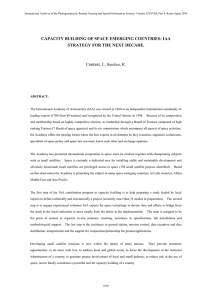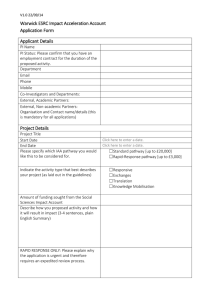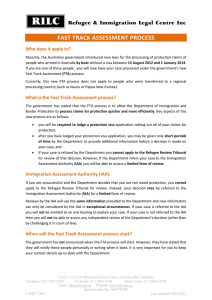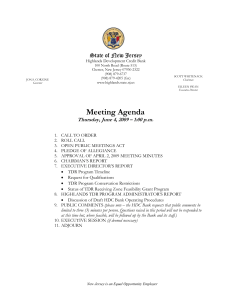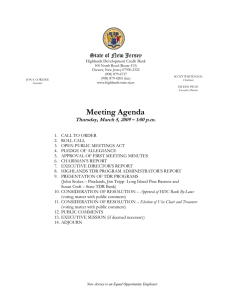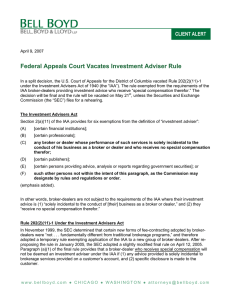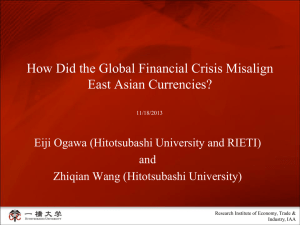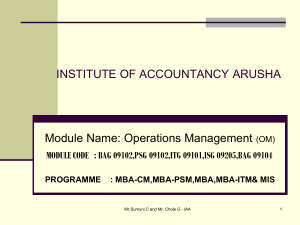Security Protection of TDR Traffic Communications Research Laboratory, Japan Rapporteur Q10/SG17, ITU-T
advertisement
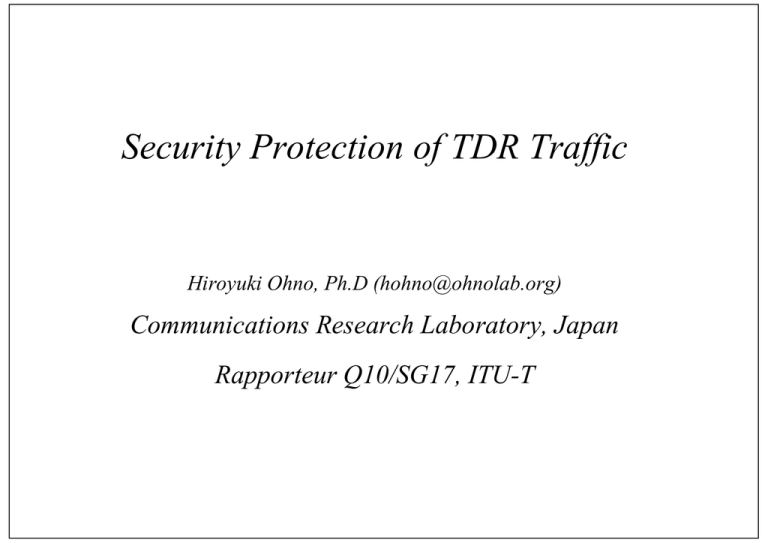
Security Protection of TDR Traffic Hiroyuki Ohno, Ph.D (hohno@ohnolab.org) Communications Research Laboratory, Japan Rapporteur Q10/SG17, ITU-T Security Protection of Telecommunications (1) Keywords: Trustness (Application) Authentication (Transpsort) QoS (Transport) Confidentiality (Network) Integrity (Network) Availability (Network) Security Protection of Telecommunications (2) Keywords: Auditing Security Policy ... Security Protection for "TDR Traffic" Requirement is almost as same as the "normal" situation but... What do we need for an "emergency" telecommunications ? Security Protection for "TDR Traffic" How should we : organize authenticatoin ? control QoS ? keep availability ? We should find/understand the special function requirement for TDR traffic Case Study: - The IAA System - The IAA System IAA - Victims information registration and retrieval system. Lifeline WG of the WIDE project started the system developement in 1995. And now the joint project of WIDE project and ECG/CRL Concept: Systems that are not in daily use will not be usable in crisis situations. The internet technology should prove its ability to be very useful in extreme conditions. Design goals of the IAA system Various types of user interfaces. Scalable and robust distributed database. "Connection less" type of the TDR Open approach H/W : IBM/PC compatibles S/W : free softwares on FreeBSD Implementation of the IAA system User interface portion. Distributed database portion. User Interface portion PC (Web Browser) PDA i-mode (cell phone in Japan) OMR/OCR interface over FAX Telephone keypad interface with voice guide (voice recognition) IAA operations. March 31, 2000 Usu volcano, Hokkaido, Japan June 27, 2000Miyaka Island, Tokyo, Japan IAA operations. September 11, 2001The IAA system has been working for the terrorist attack. Registration: over 500 Query: over 15,000 Crackers Attack: over 300,000 We have learned: The following standard are at least required to make the IAA-like approach available all over the world. Victims information verification mechanism under disaster environment. Data structure for victims information exchange Data exchange and verification protocol for vistims information exchange. We have learned: We need more consideration and understanding of ’multiculturizaiton’ Collaboration SG16/ITU-T Q.I Use of public telecommunication services for emergency and disaster relief operations TDR Project Collaboration SG17/ITU-T Q.10 Security requirements, models and guidelines for communication systems and services Security Project Collaboration UNHCR IFRC other organizations Collaboration Collaboration of TDR people and Security people has just started. We also need comments and suggestions from actual users especially for IAA-like approach. Copyright (C) 2003 Communications Research Laboratory Contact: hohno-sec@ohnolab.org
